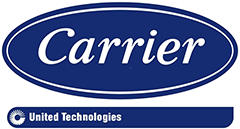atQor is a Microsoft Gold Partner with extensive experience in migrating legacy applications to Azure.
We offer a comprehensive suite of services that can help you assess, plan, and execute your migration, including:
- Assessment: We will assess your legacy applications to identify the best migration strategy for your specific needs.
- Planning: We will develop a detailed migration plan that includes all of the necessary steps and resources.
- Execution: We will execute the migration plan and ensure that your applications are successfully migrated to Azure.

We also offer a variety of add-on services, such as:
- Modernization: We can help you modernize your legacy applications to take advantage of the latest cloud technologies.
- Security: We can help you secure your legacy applications in the cloud.
- Training: We can train your team on how to manage and maintain your legacy applications in Azure.
atQor is committed to helping you succeed with your legacy application migration to Azure. Contact us today to learn more about our services.
Here are some of the benefits of migrating legacy applications to Azure with atQor:
- Expertise: atQor has a team of experienced consultants who specialize in migrating legacy applications to Azure.
- Scalability: Azure is a scalable platform that can accommodate the needs of even the most demanding legacy applications.
- Security: Azure is a secure platform that meets the highest security standards.
- Cost-effectiveness: Azure is a cost-effective platform that can help you save money on your IT costs.
If you are considering migrating your legacy applications to Azure, atQor can help you make the process smooth and successful. Contact us today to learn more about our services.
As technology evolves rapidly, many organizations are faced with the challenge of modernizing their legacy applications to keep up with the demands of the digital age. Azure, Microsoft's cloud computing platform, provides a robust set of tools and services to facilitate the migration of legacy applications to the cloud. This section aims to explore the process and considerations involved in migrating legacy applications to Azure.
As technology evolves rapidly, many organizations are faced with the challenge of modernizing their legacy applications to keep up with the demands of the digital age. Azure, Microsoft's cloud computing platform, provides a robust set of tools and services to facilitate the migration of legacy applications to the cloud. This section aims to explore the process and considerations involved in migrating legacy applications to Azure.
Understanding Legacy Applications
Legacy applications typically refer to older software systems that have been in use for a significant period and often rely on outdated technologies or infrastructure. These applications may have limitations in terms of scalability, security, and performance, hindering business agility and innovation. Migrating these applications to Azure can unlock numerous benefits, including improved reliability, scalability, cost-effectiveness, and access to a wide range of Azure services.
Assessing the Migration Scope
Before initiating a legacy application migration, it is crucial to perform a comprehensive assessment of the existing application landscape. This assessment helps identify dependencies, constraints, and potential risks associated with the migration process. It also helps determine the most suitable migration strategy for each application, such as rehosting, re-platforming, or rearchitecting.
Migration Strategies

Rehosting involves migrating the existing application to Azure with minimal or no changes to its codebase. This strategy provides a quick and straightforward migration path, allowing organizations to leverage Azure's infrastructure while minimizing the need for significant modifications. However, it may not fully utilize Azure's capabilities and may not address underlying application issues.
Replatforming entails making certain modifications to the legacy application's architecture or codebase to optimize it for Azure's platform. This approach allows organizations to take advantage of Azure's managed services, scalability options, and performance improvements while retaining most of the existing application logic. Refactoring can enhance the application's resilience, scalability, and agility.

Rearchitecting involves a significant overhaul of the application's architecture and codebase. This strategy provides the opportunity to modernize the application by leveraging cloud-native services and best practices. Rearchitecting may involve breaking monolithic applications into microservices, adopting a container-based architecture, or leveraging serverless computing. While this approach offers the most substantial benefits in terms of scalability and agility, it also requires a higher level of effort and resources.
Azure offers several migration strategies that organizations can adopt based on their specific requirements. These strategies include:
Azure Services for Legacy Application Migration
Azure offers a rich set of services and tools that facilitate the migration of legacy applications. Some key services include:
Azure Migrate provides a centralized hub for assessing and planning the migration of on-premises applications and virtual machines to Azure.
Azure App Service enables organizations to host web applications, RESTful APIs, and mobile app backends on Azure.
Azure SQL Database is a fully managed relational database service that helps migrate on-premises databases to the cloud.
AKS allows organizations to deploy, scale, and manage containerized applications using Kubernetes on Azure.
Azure Functions is a serverless computing service that allows developers to run code without provisioning or managing servers.
Features of legacy application migration to Azure
- Azure Migrate is a service that helps you assess, plan, and migrate your on-premises workloads to Azure. It provides a centralized view of your workloads, helps you identify dependencies, and provides recommendations for migration.
- Azure App Service is a fully managed platform that makes it easy to host web applications, APIs, and mobile backends on Azure. It supports a wide range of programming languages and frameworks, and offers a pay-as-you-go pricing model.
- Azure SQL Database is a fully managed relational database service that offers high availability, scalability, and security. It is a good choice for migrating legacy applications that use SQL Server.
- Azure Cosmos DB is a globally distributed, multi-model database service that is well-suited for migrating legacy applications that use NoSQL databases.
- Azure Functions is a serverless computing platform that allows you to run code without provisioning or managing servers. It is a good choice for migrating legacy applications that are event-driven or require a high degree of scalability.
- Azure Virtual Machines (VMs) give you the flexibility to run your legacy applications on Azure in a virtualized environment. You can choose from a variety of VM sizes and configurations to meet your needs.
- Azure Load Balancing helps you distribute traffic across multiple VMs, ensuring that your applications are always available.
- Azure Traffic Manager helps you route traffic to the best-performing instance of your application, regardless of its location.
- Azure Application Insights helps you monitor your applications and identify performance issues.
- Azure Backup helps you protect your applications from data loss.
- Azure Site Recovery helps you recover your applications from a disaster.
- Azure Active Directory (AD) provides single sign-on (SSO) and identity management for your applications.
- Azure Key Vault helps you store and manage your application secrets.
- Azure Monitor helps you collect and analyze telemetry data from your applications.
- Azure DevOps helps you automate the development, testing, and deployment of your applications.
- Azure Security Center helps you protect your applications from security threats.
- Azure Cost Management helps you track and manage your Azure costs.
- Azure Support provides 24/7 support for your Azure applications.
- Azure Training offers a variety of training courses on Azure.
- Azure Community provides a forum for you to connect with other Azure users and experts.
- Azure Blog provides a wealth of information on Azure.
- Azure YouTube Channel offers a variety of videos on Azure.
- Azure Twitter Account provides updates on Azure.
- Azure LinkedIn Account provides updates on Azure.
- Azure Website provides a comprehensive resource on Azure.




































